#durham university
Text
I just finished reading Fallen Thorns by Harvey Oliver Baxter, and I could not but help noticing some similarities to another beloved book with an aroace main character. Both Fallen Thorns and Loveless are set in Durham, England. The two main characters, Arlo and Georgia respectively, are first year students at Durham University and discover their aroace idenities during their time in Durham (and both during the winter, funny enough). That is where the similarities end, but I just found it hilarious that we have two aroace books set in the same town, college, basic backbone plot related to the main characters' sexual identities.
That being said, the two books are completely different plot-wise. Fallen Thorns is a paranormal story that gives me dark academia vibes, while Loveless is a contemporary coming of age plot. The former is much darker (with all the vampires, blood, and such) and has a different perspective of Durham. Arlo considers the natives of Durham and university students to be mostly stuck up. These people only care if you are rich, and you are nothing if you're not. Characters advise Arlo to not join any student societies due to the cliquey nature of them. Besides the peace Arlo finds in the empty streets and beauty of the town, we see Durham in a more negative light.
This is not the case with Loveless. Georgia and her friends joined the theatre and queer societies. They made friends easily, and you never got the impression that there are cliques there. The perspective of both the town and college was positive. The closest thing to a stuck up person would have to be Lloyd with his aphobia in the queer society. I just got a completely different interpretation of Durham from reading this book.
Anyway, I am not from England. I've never been there, even though I would like to one day. I just found this interesting as I read Fallen Thorns and thought I would share my thoughts. If anyone from Durham reads this, please share with me your thoughts on the town. I would love to know your perspective also.
With all that being said, I freaking loved Fallen Thorns. It is a solid 5/5 stars and has a great plot. The aroace representation was beyond accurate. I really saw myself in Arlo, and the ending left me believing that there would be a sequel. If there is one, I can't wait to read it.
#asexual#aroace#asexuality#aromantic#aromantism#asexual books#bookblr#loveless#fallen thorns#alice oseman#durham#durham university
7 notes
·
View notes
Text
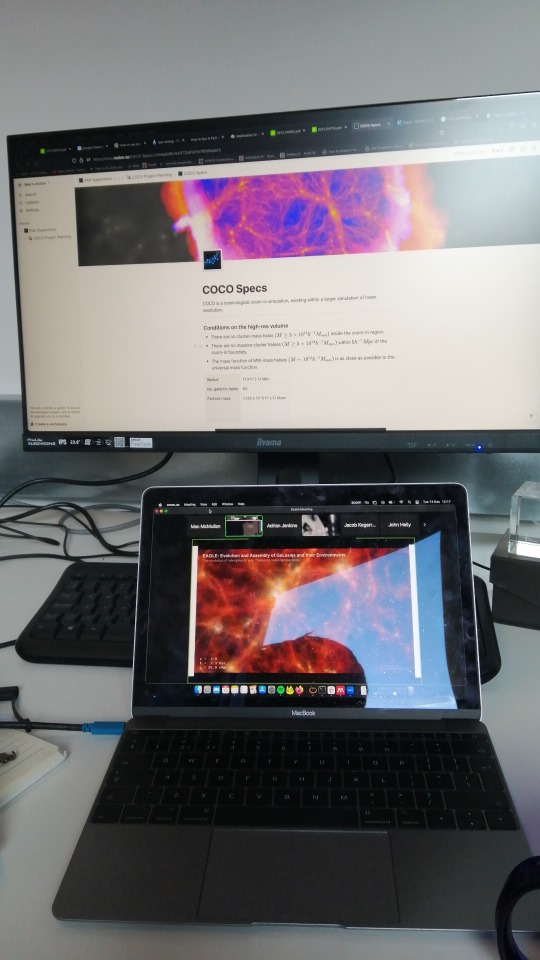
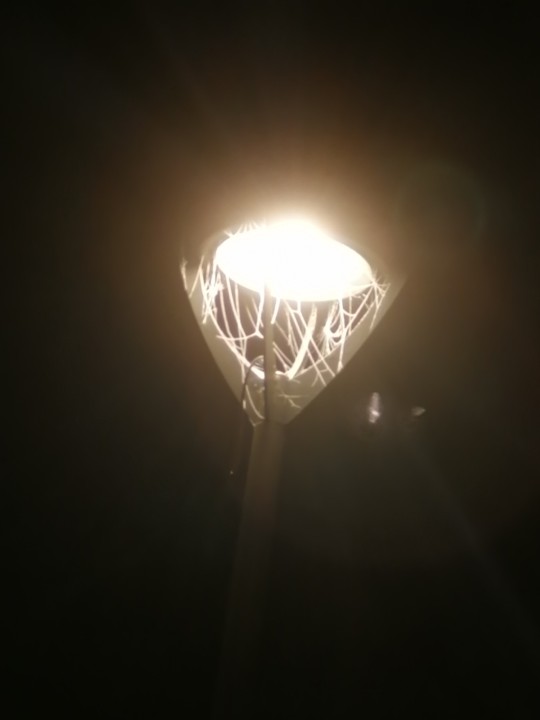
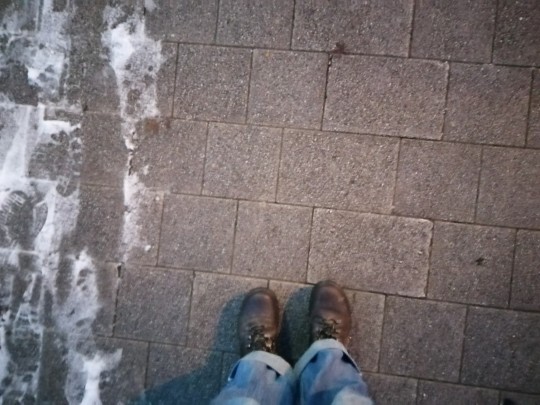
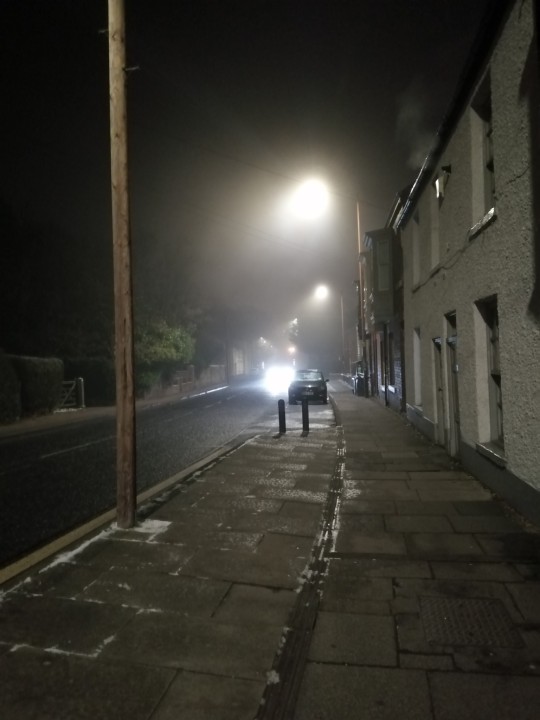
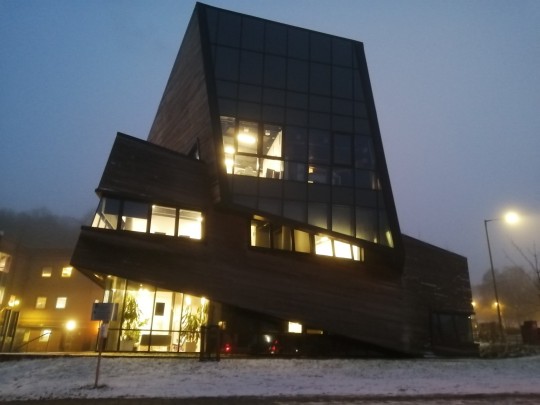
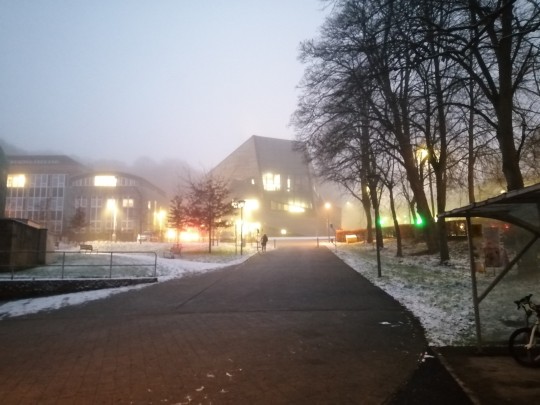
17.12.2022
You guys have no idea how utterly freezing and still my past week has been. I feel like I am inside the most beautiful painting.
#messyblr#mine#studyblr#physics#college#books & libraries#science#dark academia#physblr#dark academia aesthetic#stemblr#gradblr#student#studying#astrophysics#durham#Durham University
97 notes
·
View notes
Text

Inspired by @robbielewis and his brilliant ongoing series featuring a pictorial history of the Northeast, this is the first in an occasional series of posts on film, theatre and television luminaries with a strong personal or professional link with Northeast England, beginning with John Nightingale.
There doesn't appear to be a great deal of information available; he was apparently born in Burnley, Lancashire, in 1942, and attended St Cuthbert’s College, Durham University. He also spent several years with the National Youth Theatre, and while with the NYT made his television debut, which was noted by the Durham University paper, Palatinate, in 1964.

John Nightingale's highest profile role was in the BBC’s When the Boat Comes In, a gritty social and political drama set during the years after the Great War in the struggling Tyneside community of Gallowshields. Appearing in 39 episodes over 1976 and 77, he played the troubled but likeable Tom Seaton. It was a standout performance in the company of some very fine actors, including James Bolam, Susan Jameson, Edward Wilson, Jean Heywood, James Garbutt, Malcolm Terris, Ian Cullen, Madelaine Newton and Michelle Newell.
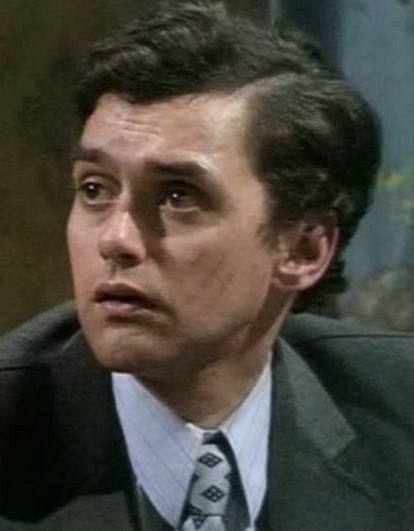
John Nightingale’s other television credits include appearances in Crown Court, in three episodes of Alan Plater’s dramatisation of the AJ Cronin novel, The Stars Look Down, the epic drama-documentary Fall of Eagles, and the Thames political drama, Bill Brand, as well as a handful of appearances in BBC television plays.
He passed away in 1980, aged just 37, from cancer. His challenging role in When the Boat Comes In demonstrated that he was one of the most gifted actors of his generation, and makes you wonder just what he could have achieved given the chance of a long life and career.
Thanks (again) to @robbielewis for a little additional history of Durham University.
#social history#working class history#british actors#british television#british theatre#national youth theatre#actors of the northeast#northeast england#durham university
8 notes
·
View notes
Text
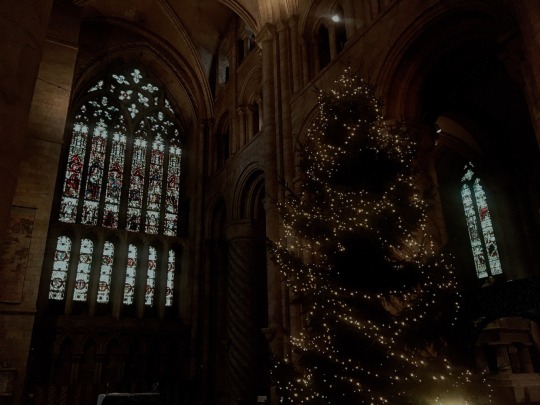

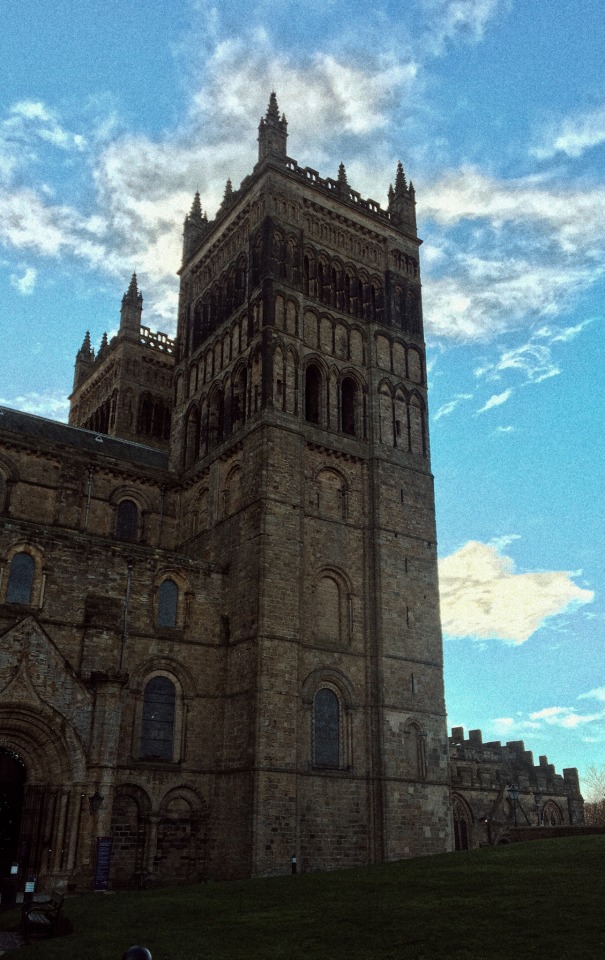
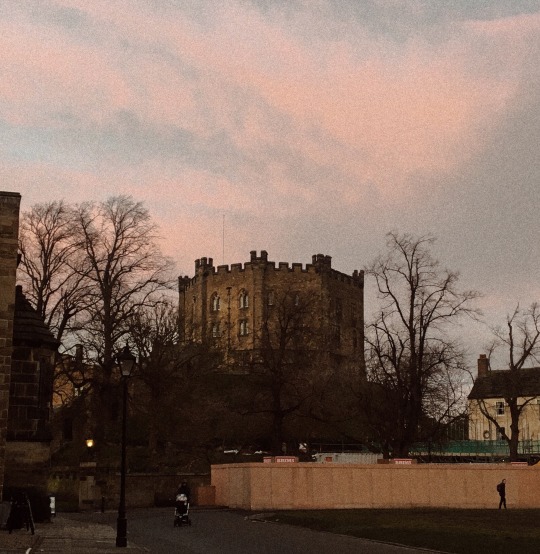
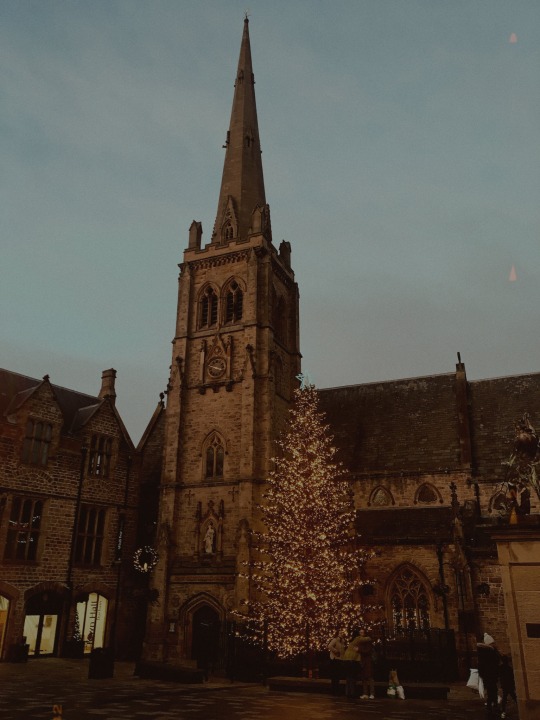
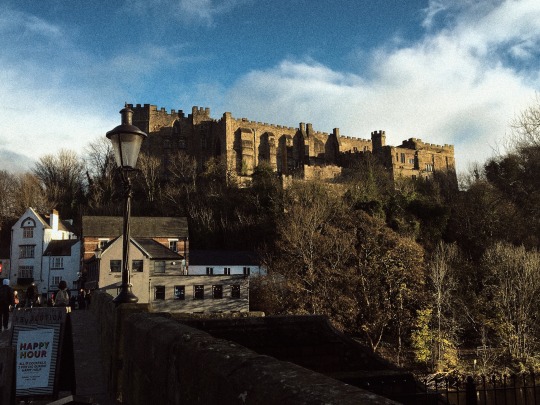
seeing durham cathedral again felt like visiting an old friend :) (8/12/22)
#cathedral#dark academia#durham#durham university#studyblr#medieval#medieval architecture#history#northern england#north east
14 notes
·
View notes
Text
Book Review – ‘Loveless’ (#10 Osemanverse) by Alice Oseman
Exploring the heart, and the different ways it can love.
Genre: Y/A, Contemporary, LGBTQIA+
No. of pages: 433
It was all sinking in. I’d never had a crush on anyone. No boys, no girls, not a single person I had ever met. What did that mean?
Georgia has never been in love, never kissed anyone, never even had a crush – but as a fanfic-obsessed romantic she’s sure she’ll find her person one…
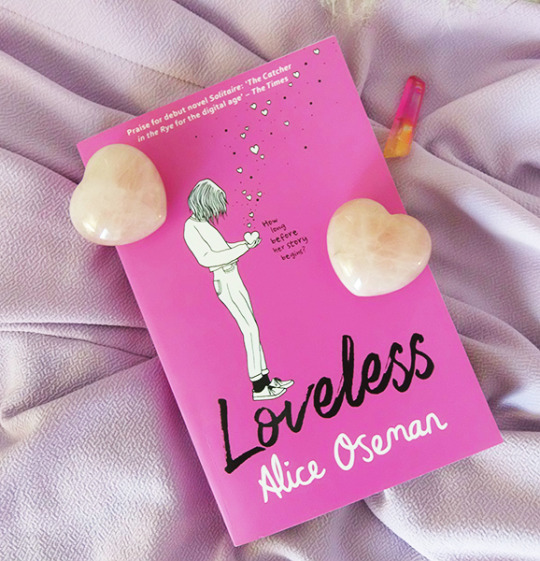
View On WordPress
#ace#Acting#Alice Oseman#amreading#aro#aromantic#asexual#bisexual#book#book review#Casey Carlisle#coming of age#coming out#contemporary#CritiqueCasey#Durham University#Fiction#found family#friendship#Georgia#GLBT#GLBTQIA+#identity#Jason#lesbian#loveislove#Loveless#Osemanverse#Pip#play
3 notes
·
View notes
Text
Durham University: A Comprehensive Overview of the Prestigious Institution
Durham University is a world-renowned institution located in the historic city of Durham, United Kingdom. Founded in 1832, Durham University is one of the oldest universities in the UK and has a reputation for academic excellence and research. In this article, we will provide a comprehensive overview of Durham University, including its history, academic programs, campus, and student life.
History
Durham University was founded by the Bishop of Durham, William van Mildert, in 1832. The university was established as a response to the growing need for higher education in the North East of England. Initially, the university consisted of just two colleges - University College and Durham College of Physical Science. However, over time, the university expanded and new colleges were added.
Academic Programs
Durham university of durham offers a wide range of undergraduate and postgraduate programs across a variety of disciplines. Some of the most popular undergraduate programs include Business, Law, Psychology, Engineering, and Computer Science. The university also offers a range of postgraduate programs, including Master's degrees and PhDs.
One of the unique features of Durham University is its collegiate system. The university is made up of 16 colleges, each with its own history, traditions, and character. Students are assigned to a college when they enrol, and each college provides academic and pastoral support to its students. The collegiate system also means that students have access to a wide range of social, cultural, and sporting activities.
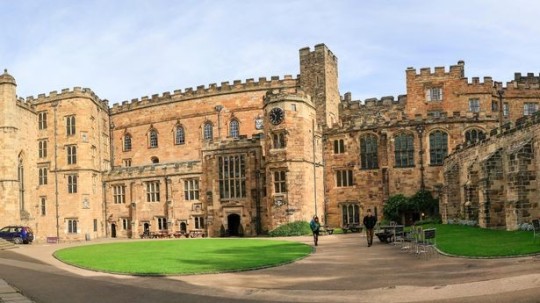
Campus
Durham University is situated in the heart of the city of Durham, which is located in the North East of England. The university's main campus is spread across three sites - Durham City, Queen's Campus in Stockton-on-Tees, and the Sir Peter Ustinov College in Durham. The Durham City campus is the largest and most historic, and is home to the majority of the university's academic departments.
The Durham City campus is situated on a peninsula surrounded by the River Wear, and is home to some of the university's most iconic buildings. These include Durham Castle, which was built in the 11th century and is now a UNESCO World Heritage Site, and the Cathedral, which dates back to the 12th century and is one of the finest examples of Norman architecture in the world.
Student Life
durham university uk has a vibrant student community, with students from all over the world coming to study at the institution. The university has a wide range of student societies and clubs, covering a variety of interests and hobbies. These include sports teams, music and drama groups, and academic societies.
The university also has a range of student support services, including a dedicated careers service, a student wellbeing service, and a student union. The student union is the hub of student life on campus, and organises a range of social and cultural events throughout the year.
Conclusion
Durham University is a prestigious institution with a rich history, excellent academic programs, and a vibrant student community. Whether you are interested in business, law, psychology, engineering, or computer science, Durham University has a program to suit you. The university's collegiate system means that students have access to a wide range of support and activities, and the historic campus provides a unique and inspiring learning environment.
Read More-: durham university fees
#durham university#university of durham#durham university uk ranking#durham university acceptance rate#durham university fees#durham university rank#durham university uk
4 notes
·
View notes
Text
Yes I did upload something onto my YouTube Channel: ‘Late Night at Durham Uni Library’ which due to general business was the only video I ended up making last academic year. Featuring my housemates and a very stale cheese roll, enjoy!
youtube
#studyspo#youtube#studyblr#studyspiration#study notes#uniblr#reblog#studying#ukstudyblr#a level blr#durham university#Youtube#study blog#study mood#studygram#gcse studyblr
6 notes
·
View notes
Text
Studi / Il terremoto “dimenticato” in Andalusia che segnò la fine di El Castillejo, centro fortificato islamico medievale
Studi / Il terremoto “dimenticato” in Andalusia che segnò la fine di El Castillejo, centro fortificato islamico medievale
La ricerca è stata pubblicata su Plos One.
Il centro islamico medievale di El Castillejo, in Andalusia (Spagna), è stato abbandonato nel XIII secolo molto probabilmente a seguito di un forte terremoto. Lo rivela uno studio pubblicato sulla rivista PLoS ONE: si tratta della più antica testimonianza ad oggi nota di un terremoto nella regione di Granada. La scoperta potrebbe fornire nuove informazioni utili per la prevenzione del rischio…

View On WordPress
#Andalusia#archeologia#Durham University#El Castillejo#notizie#Paolo Forlin#Plos One#RWTH Aachen University#scavi archeologici#Spagna#studi#terremoto#Universidad de Granada
0 notes
Text
Around the British Rail network in eight hundred minutes : 1976 : Durham University challenge
“Which bus goes to the University, please?” I asked. The man replied helpfully, but I could not understand a word he had said. He spoke English, though not an English I had heard before. I was confused by all the bus stops, having just exited Lancaster railway station. At which one did I need to wait? There was no bus map. There were no obvious students to ask. I had never been north of Luton until then. I had never watched ‘Coronation Street’. I was a southerner who barely understood a word that was being said to me there, hundreds of miles from home.
I had left the house that morning at the crack of dawn to make a day trip to check out Lancaster University. It was one of five universities I had selected on my UCCA form, all of which had offered me a place, conditional upon A-level results, without requesting an interview. However, if I was going to spend three years far away from home, I wanted to go see each one to help me choose. I had never visited a university before. Aside from my teachers, I had never met anyone who had attended university. That year, I hoped to be one of the 6% of school leavers who would go on to university, a proportion that had multiplied from 2% the year I had been born.
My state school had provided no useful advice how to choose a university or course. Our designated ‘careers counsellor’ was actually a moonlighting English teacher who would merely direct us to a row of dogeared university prospectuses on his office shelf. Some were out-of-date, many were missing. We were offered no ‘careers’ seminars. Surrey County Council had compelled each sixth-former to complete a multiple-choice questionnaire and then informed us for which career we were supposedly suited. Further studies were never suggested. You were on your own when it came to an academic future.
I understood that my choice of university could be a life-changing decision, one that required me to review the maximum amount of available information. If neither my family nor my school could provide useful advice, I would research all the options myself. I wrote a letter to every UK university outside London (where I realised accommodation was unaffordable), requesting their current prospectus and details of their economics courses. I chose that subject simply because it had provided my best academic results at school. I had known for a decade that I desired a career in ‘radio’, though university courses in media or broadcasting did not exist. If I had known then that Britain’s first ‘media studies’ degree had been launched at the Polytechnic of Central London (later renamed the University of Westminster) in 1975, I might have rethought my plans.
Seven years earlier, at my council estate junior school, I had been one of three children out of my class of thirty (10%) to have passed the ’11-Plus’ examination, necessary to progress to ‘grammar school’. However, at that time, around 20% of UK pupils attended these ‘selective’ secondary schools, the difference attributable to the substantial numbers of privately educated children who were crammed intensively at fee-paying ‘preparatory schools’ to pass the exam and who then dominated grammar schools’ intakes. From my ‘year’ of sixty students at Strode’s School, only around ten of us progressed to university, an indication that the ’11-Plus’ was less a successful method of identifying Britain’s brightest children, and more a route for middle-class parents to secure their offsprings an elitist secondary education paid for by the state. Has this situation since improved? In 2008, the Sutton Trust reported that grammar schools were enrolling “…half as many academically able children from disadvantaged backgrounds as they could do”.
I was fortunate that Surrey County Council would pay my train fares for visits to five universities, whether an interview was required or not. I had to determine when each institution offered ‘open days’, book my place, arrange train tickets and inform the school of my impending absence. It required considerable organisation, particularly as these visits necessitated train connections in London. These were days when I would not return home until almost midnight and would have to go to school the following day. I had never travelled so many miles on public transport or seen so much of England from a train window.
I must have been the only student at my school to own a copy at home of almost every UK university’s current prospectus. My request for economics course information proved less successful. Many sent me nothing, the remainder provided a single sheet outlining a course that merely encompassed all aspects of the subject. I read absolutely everything I was sent and concluded that every university claimed to be absolutely perfect and their courses the best. I had merely filled my bedroom bookshelf with marketing propaganda. Instead, I decided to select four universities that already operated student radio stations as this was my long-term career objective … plus Durham.
Although Durham University had no radio station, I learned it was apparently thought of highly. If I were rejected by Cambridge, I considered it might be a reputational substitute. Due to the 300-mile distance, my trip to Durham required an overnight stay in Collingwood College which was offered free to those attending ‘open days’. After a long train journey followed by an uphill walk, I was given an undergraduate bedroom within the college and met several other visitors who were there for the same reason. We took the university’s guided tours together the next day and ate as a group in the college’s dining room, offering us a first taste of undergraduate life.
The following morning, we packed our bags and met together for the thirty-minute walk to Durham railway station on the opposite side of town to catch our trains back to ‘the south’. However, we found the platforms deserted and, eventually locating a member of staff, we were told that a strike had started that morning and there were no trains departing in any direction. Returning to the college with our tails between our legs, we explained our problem and it kindly offered to extend its hospitality until we could depart. Each of us changed our banknotes into piles of ten-pence coins and queued at the college’s one public phone in the basement to contact our parents and schools to explain that we did not yet know when we could return. A quick visit had unexpectedly transformed into something longer.
I took the opportunity to wander around Durham’s compact town centre and explore more places, particularly the ‘Musicore’ record shop. The university library and the cathedral were both impressive, as was the brutalist concrete student union building ‘Dunelm House’ and adjoining ‘Kingsgate Bridge’ constructed by architect Ove Arup in 1963. The other universities I had visited were campus-based, requiring a bus journey to the nearest town. I quite liked Durham’s integration into the city and the ability to walk from one end to the other without need of transport.
The next morning, before breakfast in the college dining room, I phoned Durham railway station, to be informed that no trains would be running for the second consecutive day. This was the only method to obtain information in those days. I met the others and we phoned our families with our disappointing update. We spent most of that day sat together in the Junior Common Room chatting, sharing our university visit experiences and our hopes for the future. For me, it was particularly interesting to meet young people for the first time who shared my situation.
I made another call to the railway station the next morning, anticipating more bad news, but was told a single train was expected that day. It would be heading north, the opposite direction to what we required. I asked if there was any alternative route to London and it was explained that, although the east coast route was still on strike, we could try travelling via the west coast on the opposite side of the country. When was this one train expected? In an hour, I was told. Action stations!
I located my fellow visitors and, without taking breakfast, we all signed out of college and rushed off to the station. There was no information available there about the time of the train, on which platform it would arrive or where it would be heading. While we waited, we examined a British Rail route map in the ticket office which showed a cross-country route from east to west coast that started in Newcastle, the next major stop north of Durham. We were the only people awaiting a train and did wonder whether we had been sent on a wild goose chase, only to have to return to the college for yet another night.
Then the day’s promised one train appeared and pulled into the station. Unsurprisingly, it was almost empty. Who would have known it would be running in the midst of a crippling strike? We boarded and waved farewell to Durham, not knowing if any of us would ever return. Within a quarter-hour, we alighted in Newcastle. It was the first of many times that day that we were required to explain to confused railway staff that, although our tickets to London were dated days earlier, the unanticipated strike had forced us to take the only train available … in the opposite direction.
Next, to cross England to the west coast, we discovered we had to take a less regular, slower train that would depart in an hour. The wait gave us an opportunity to walk out of Newcastle railway station, buy some breakfast and wander around the city. Compared to Durham, it appeared a huge, busy scruffy city centre with huge Victorian stores and old-fashioned shopping arcades. Even the clothes people wore seemed dated and dowdy, particularly seeing many men wearing flat caps. It was an industrial city where time seemed to have stood still fifty years earlier.
Our ninety-minute journey in a local train from Newcastle to Carlisle took us across the bleak terrain of the North Pennine hills, stopping only at tiny towns with strange, unfamiliar names like Prudhoe, Corbridge, Hexham and Haltwhistle. Once again, we were required to explain to the train’s on-board ticket inspector why we were travelling in the wrong direction with out-of-date tickets. He knew about the strike and laughed heartily at our story, wishing us well on our journey home. It began to feel like a kind of ‘expedition’ where, at every step, it proved necessary to explain why our little group of seventeen-year-olds were taking a route no sane person would choose to follow.
The train terminated at Carlisle, a two-thousand-year-old city on the border between England and Scotland, fifty-five miles west and north of Durham. It was midday by now and, from there, we could now take a west coast 'Intercity' train southbound. We did not venture outside the station as this would have entailed having to explain our tickets once more and we feared not being allowed entry back into the station. This region was unaffected by the strike and trains seemed thankfully to be running as scheduled.
Our four-hour journey to London was comfortable until a ticket inspector arrived. We explained our story but he seemed unaware of the rail strike on the east coast and disbelieved our narrative. Initially, he demanded we pay for new tickets. We refused because we each held a valid, paid-for British Rail ticket that we had been prevented from using by the strike. The argument continued and he demanded we write down our names and addresses in order that the police could be contacted so that we would be fined for travelling without valid tickets. He was a ridiculous ‘jobsworthy’ who showed no sympathy for our plight. His attitude ruined the longest, most gruelling part of that day’s journey.
Reaching London’s Euston station, our small group split up to head different directions home. It was a sad parting of ways as we had no idea if we would ever see each other again or even which university each of us might attend (no social media or mobile phones then!). The last few days had required us to bond in the face of adversity, forcing us to make a round-Britain trip we had never imagined. It would be quite a story to tell our classmates.
I crossed London by Tube, caught a train from Waterloo station to Camberley and then a bus, reaching home more than twelve hours after having left Collingwood College in Durham. My school might not have been happy about my extended absence but, later that year, those awaydays would play a major role in my decision to study in Durham. I felt as if I was already sufficiently familiar with the college and the town as a result of that elongated visit. I imagined that my fellow Durham students would be similar to those with whom I had travelled the length and breadth of England.
Did I receive correspondence from British Rail or the police as a result of the unfriendly ticket inspector we had encountered? Thankfully, no. Did I ever see my newfound friends again? Sadly, no.
0 notes
Text
Rice research opens new arena to study quantum interactions - Technology Org
New Post has been published on https://thedigitalinsider.com/rice-research-opens-new-arena-to-study-quantum-interactions-technology-org/
Rice research opens new arena to study quantum interactions - Technology Org
Quantum technologies promise faster computing, enhanced drug development, and new sensing applications. However, quantum behaviors are difficult to study experimentally since most systems can only sustain quantum effects briefly.
An artist’s conception of molecules rotating in a quantum superposition in a trap, with clockwise (red) and counterclockwise (blue) rotation rates varying in space. Image credit: Hazzard Group/Rice University
“The reason why quantum physics’ mysterious features tend to vanish so quickly is a process called decoherence,” said Kaden Hazzard, associate professor of physics and astronomy at Rice University and a corresponding author on a study published in Nature Physics. “It occurs when a quantum system interacts with its surroundings and this changes the physics. The bigger the system and the larger the couplings to the surroundings, the more the system will behave in a classical, non-quantum fashion ⎯ and you lose your ability to investigate things at the quantum level.”
Rice scientists and collaborators were able to prolong quantum behavior in an experimental system nearly 30-fold by using ultracold temperatures and laser wavelengths to generate a “magic trap” that helped delay the onset of decoherence. The study is the first experimental demonstration of its kind and provides a new arena to study quantum interactions.
Simon Cornish’s group in the Department of Physics at Durham University in the United Kingdom collaborated with Hazzard and his group at Rice to cool molecules to a billion times below room temperature to create a unique quantum mechanical system. They then set those molecules to rotate quantum mechanically ⎯ , a situation analogous to molecules aligning and rotating clockwise and counterclockwise simultaneously ⎯ using microwave radiation.
“When you cool atoms or molecules to these extremely low temperatures, you can control them with light,” Cornish said. “You can actually use lasers to push on the atoms and make them go where you want them to go. You can also use lasers to trap or hold them, and that gives you a level of precision and control that you wouldn’t have normally.”
Generally, the coherence of this rotating behavior in the ultracold molecules decays over a very short amount of time. Before now, the longest recorded quantum state of rotating molecules measured in at 1/20 of a second. Cornish’s group, however, was inspired by theoretical work by Temple University’s Svetlana Kotochigova that suggested a certain “magic” wavelength of light could preserve quantum coherence for a longer period of time.
“Quantum behavior becomes more prominent the colder the system is and brings the quantum behavior to larger length scales,” said Jonathan Stepp, a graduate student in Hazzard’s group. “And having lasers at the right wavelength can ‘trap’ the molecules, so they can rotate in lockstep, which preserves the quantum coherence for a longer time.”
When the group applied this theory in the laboratory as a new experimental technique, they created a “magic trap” which kept the molecules rotating quantum mechanically for a significantly longer time. While Hazzard thought this “magic” laser trap might increase quantum coherence by two- or three-fold, he was shocked to see it kept the molecules uniformly rotating for nearly 1.5 seconds ⎯ a 30-fold increase.
“While I’m not surprised it worked, I’m definitely surprised at how well it worked,” Hazzard said.
Zewen Zhang, another graduate student in Hazzard’s group, said that improved coherence times will allow scientists to study fundamental questions about interacting quantum matter.
“As coherence times become longer, new effects are unveiled,” Zhang said. “We can begin exploring by comparing the experimental measurements to our calculations. Improved coherence is also a step to using ultracold molecules as a platform for various quantum technologies.”“Even though quantum behavior sounds like a very exotic thing, it’s actually responsible for things we see every day, from how metals conduct electricity to how fusion is produced by the sun,” added Hazzard, who is a member of the Rice Quantum Initiative and the Smalley-Curl Institute. “If you want to make new materials, new sensors or other quantum technologies, you need to understand what is happening at the quantum level, and this research is a step toward achieving new insights.”
Source: Rice University
You can offer your link to a page which is relevant to the topic of this post.
#applications#Astronomy#atoms#Behavior#billion#Blue#classical#computing#curl#Delay#development#drug#drug development#Durham University#effects#electricity#experimental#fashion#Features#Fundamental#Fundamental physics news#Fusion#how#insights#it#laser#lasers#Light#Link#materials
0 notes
Text
Harrogate Hockey Ladies 1s 3-2 Durham Uni Ladies 2s
Harrogate hockey Ladies 1s came from behind late on in the game to grab a 3-2 victory against a very good Durham Uni team.
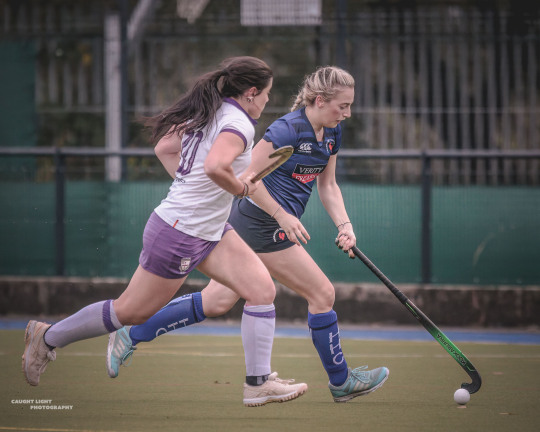

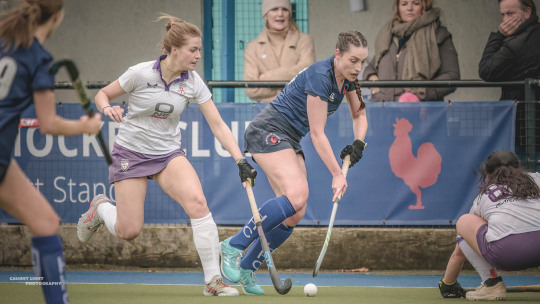


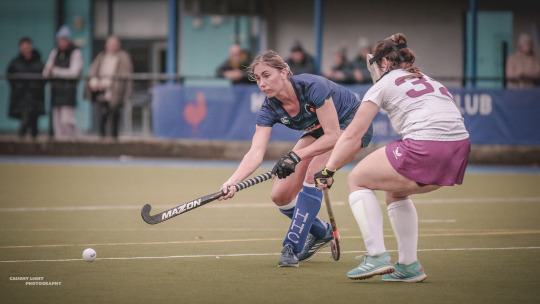



Losing 2-1 at half time, Harrogate Ladies 1s pressed hard to find the equaliser and it came near the end of the game; and the sense of relief was palpable.
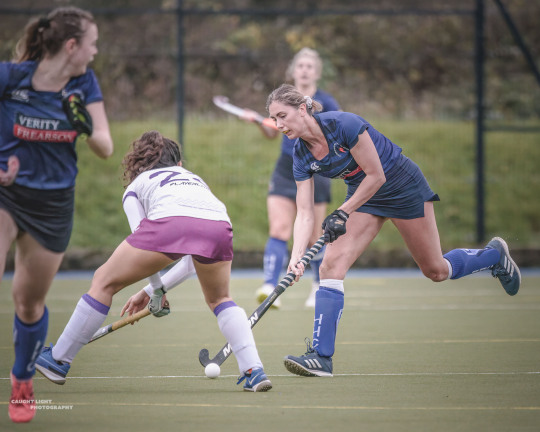
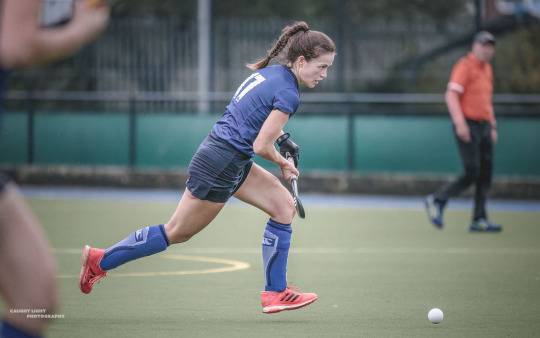

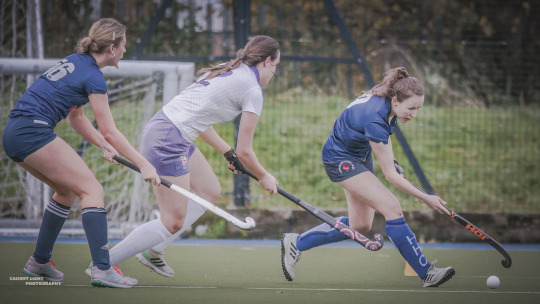




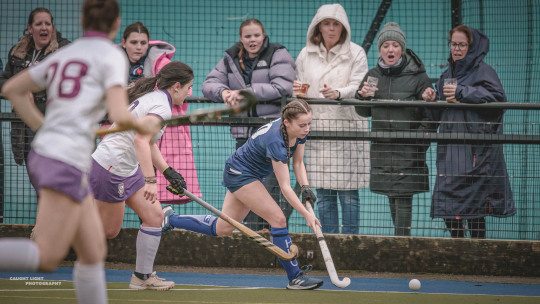
Any thoughts that they would be happy to share the points were dispelled quickly as the home team pressed forward to find the winner.
It was to come in the form of a penalty, awarded with only a few minutes to go. It was Lucy Wood who stepped up to take it, and knowing how accurate the Harrogate forward has been over the years...the outcome was never going to be in doubt! The Ladies 1s had a 3-2 lead with seconds left on the clock.


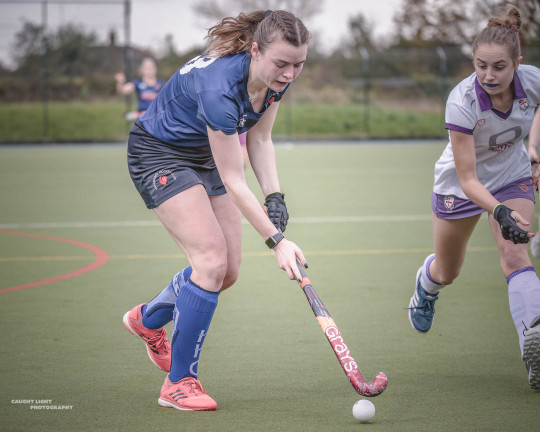
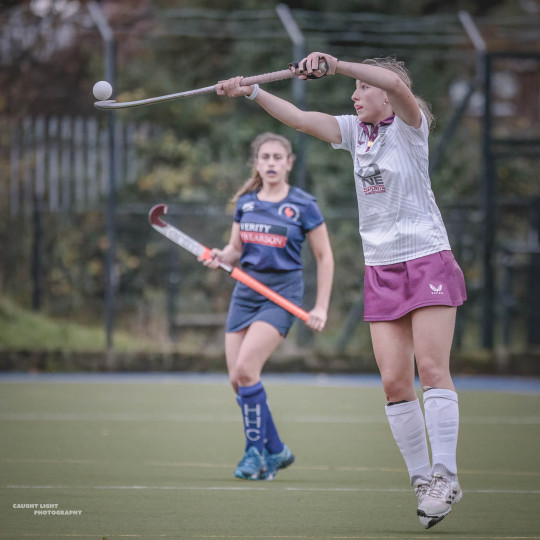
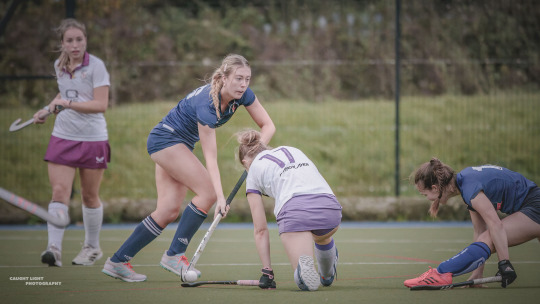



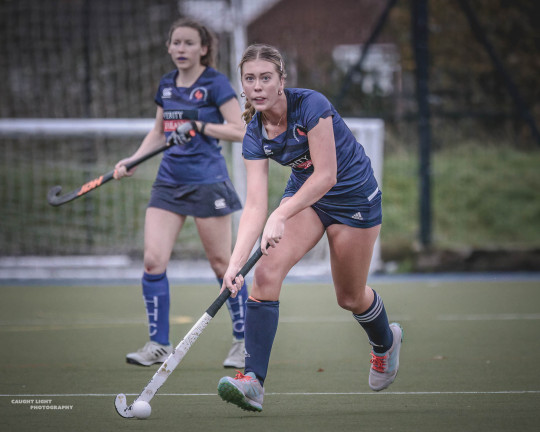
Durham weren't finished and in the final moments of the game pushed forward to try and get the equaliser. As the final whistle was about to go, they earned a short corner...the ball was fired in on target but the Harrogate keeper, Lily Sowray, was able to kick the ball away, the whistle blew and the home team had won the close-fought game.
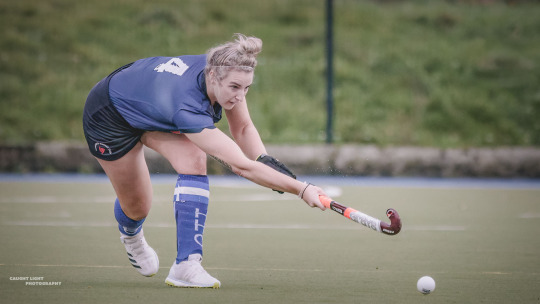

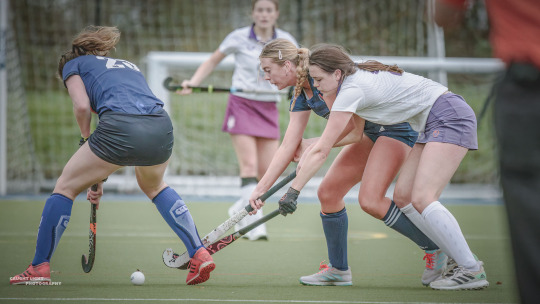
#Hockey#Harrogate#North Yorkshire#Yorkshire#England Hockey#League#Durham#Durham University#Photography#Sports Photography#Sport
0 notes
Text
We are Helping students in their exams, Final Year Projects, Thesis, Individuals and Group Assignments just in Cheap Price.WhatsApp # +923441653963

#university of edinburgh#durham university#university of manchester#imperial college london#kingston university london#banuuniversity#Cambriage University#england#uk lesbian#usa#britain#london#united kingdom
0 notes
Link
0 notes
Text
The USA’s 05 least Visited destinations, Put this mesmerizing places to your bucket list.
The USA’s 05 least Visited destinations, Put this mesmerizing places to your bucket list.
The USA has a significant domestic tourism industry, making it one of the most visited countries in the world. Some of the most popular American national tourist destinations include Disney World, Time Square, Yellowstone National Park, LA, Washington, DC, and Yosemite National Park.
All of the venues are frequented by people. We can recommend the top 05 least visited tourist destinations in the…

View On WordPress
#americinn tofte#buffalo#buffalo america#buffalo new york#buffalo to new york city#buffalo usa#cabins in the ouachita mountains#camping near white sands national park#city in usa#city of buffalo#downtown buffalo#durham#durham accommodation#durham cathedral#durham law#durham university#durham university accommodation#durham university open days#lake superior#lake superior depth#lake superior state park#larsmont cottages#lutsen resort#museums in nyc#new york#new york to buffalo#north shore lake superior#nyc#ouachita mountains#ouachita mountains ar
0 notes